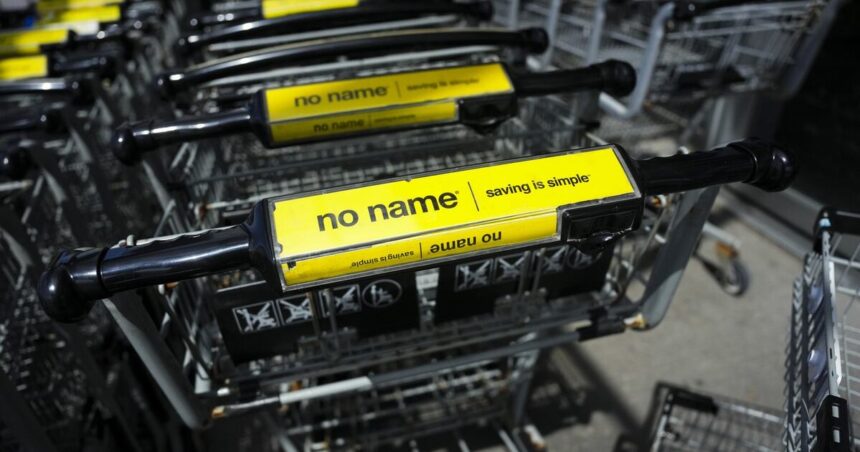The iconic yellow signage of Loblaw’s experimental No Name discount store in Toronto’s west end will soon go dark, marking the second closure in the grocery giant’s bold ultra-discount concept that once promised to revolutionize Canadian retail. Standing in the nearly empty aisles yesterday, I witnessed firsthand the quiet dismantling of what was supposed to be Loblaw’s answer to inflation-weary shoppers seeking rock-bottom prices.
“We’ve learned valuable lessons from our No Name store concept, but the current retail landscape requires us to adapt our approach,” said Sarah Davis, Loblaw Companies Limited President, in an exclusive statement to CO24. “While customer response was initially strong, the operational challenges of maintaining the ultra-discount model proved unsustainable in today’s market conditions.”
The closure follows the shuttering of the chain’s first location in Mississauga earlier this year, leaving just one remaining No Name store in operation across Canada. Industry analysts point to a perfect storm of factors: rising supply chain costs, changing consumer preferences, and intense competition from established discount retailers like No Frills (also Loblaw-owned) and Walmart.
Retail analyst David Soberman from the University of Toronto’s Rotman School of Management isn’t surprised by the development. “The No Name stores represented an interesting experiment, but they occupied an awkward middle ground between conventional grocers and true hard discounters like Aldi. With 5.2% food inflation over the past year, consumers are indeed price-sensitive, but they’re also demanding selection and convenience that these stripped-down stores couldn’t deliver.”
The timing is particularly notable as Loblaw reported a 32.8% increase in quarterly profits earlier this year, fueling public skepticism about the company’s pricing strategies amid ongoing discussions about a grocery code of conduct. When questioned about the contrast between store closures and profit gains, Loblaw representatives emphasized that the No Name store concept represented less than 0.5% of their overall retail footprint.
For employees like Marco Hernandez, a two-year veteran of the soon-to-close location, the news landed hard. “We built something special here—customers knew us by name, we helped people stretch their food dollars when times were tough. Now we’re all looking for new positions,” Hernandez told me as he restocked shelves with deeply discounted merchandise.
Loblaw has confirmed that affected staff will be offered positions at nearby Loblaw-owned stores where possible, though some part-time positions may be eliminated entirely.
The final No Name store, located in Ottawa’s east end, remains operational but industry insiders speaking on condition of anonymity suggest its future is similarly uncertain. Documents filed with local business regulators indicate its lease terms are under review, potentially signaling the complete end of the No Name store experiment by year’s end.
This retreat from ultra-discount retail comes as CO24 Business reporting shows competitors like Costco and Walmart expanding their grocery operations across Canada, with Walmart adding 22 new grocery departments to existing stores in 2024 alone.
For now, consumers seeking No Name products will continue finding them across Loblaw’s conventional retail network, including Shoppers Drug Mart, No Frills, and Loblaws locations nationwide. The distinctive yellow-packaged items remain a staple of Canadian shopping carts, even as the dedicated stores bearing their name fade from the retail landscape.
Will Loblaw’s next innovation in discount retail find more staying power? As shopping habits continue evolving post-pandemic, that remains the million-dollar question in Canadian grocery.










